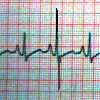Stress, which can involve symptoms such as headaches, irritability, and substance abuse, can also affect us more severely if the stress is severe enough or too much to handle. Stress disorders can be the result of life events, such as post-traumatic stress disorder and acute stress disorder in the instance of a traumatic experience, or adjustment disorder due to a stressful life event or change in life.

Post-traumatic stress disorder is most well known as occurring to soldiers and individuals involved in war or any other major stressor or traumatic incident, such as rape or violent assualt. Symptoms accompanying the disorder involve extreme anxiety and flashbacks of the event, as well as potential numbing or avoidance of thinking or talking about the situation.
Those diagnosed with acute stress disorder may experience a similar situation as those who get diagnosed with post-traumatic stress disorder with the main difference being that acute stress disorder lasts less than 4 weeks in duration. It is characterized by extreme anxiety, and possible feelings of being detached from themselves and their surroundings. They may also experience dissociative amnesia and forget aspects of the event, and may experience flashbacks regarding the incident.
Slightly different from the other two stress disorders, adjustment disorder occurs when an individual is unable to adjust to a situation or life event, resulting in inability to function normally. This may include having a baby, dealing with the death of a loved one, or starting a new job. Feelings of extreme stress, being overwhelmed, sadness, and helplessness are common symptoms, and because these symptoms are similar to those of depression, the disorder could be misdiagnosed.
Treatments for stress disorders can involve both biological and therapeutic approaches. Medications can be used for treatment, as well as cognitive-behavioral therapy, desensitization techniques, and interpersonal techniques focused on providing social support.
© BrainMass Inc. brainmass.com June 30, 2024, 9:24 am ad1c9bdddf


